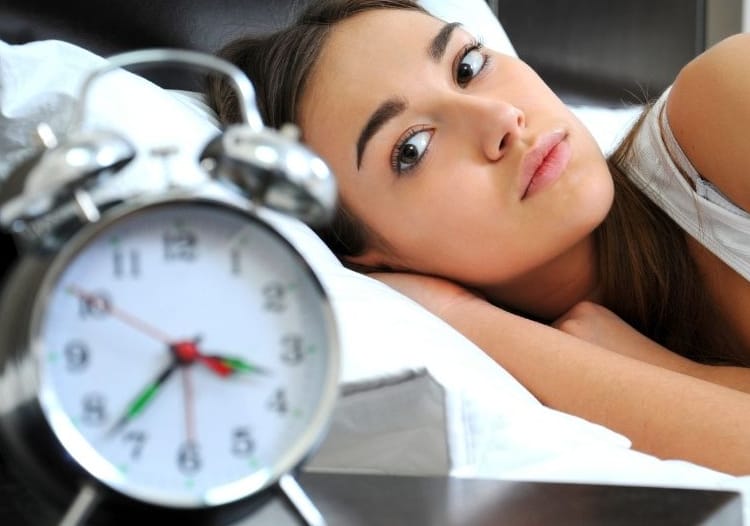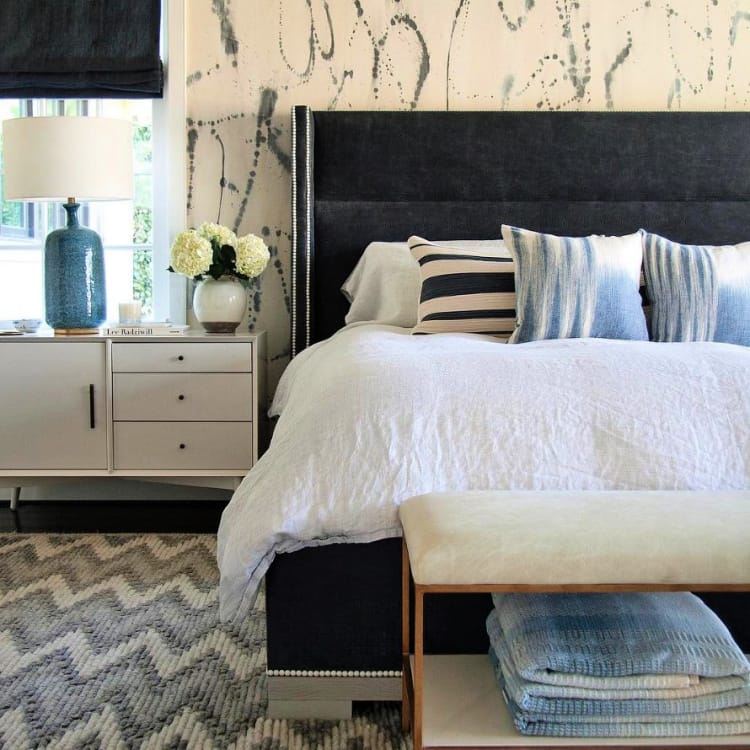
Does this sound familiar…
You go to bed when you think you’re tired, but once there, you toss and turn and just can’t fall asleep. No rhyme or reason…
Or you fall asleep easily, but wake up several hours later – not always because you had to go to the bathroom – and then can’t fall back to sleep. You may even wake up and think it’s time to get up and learn it’s only 3:30!

Then, if you’re lucky enough to eventually fall back to sleep, you wake up still tired and not looking forward to another day.
Well, all of this was me and I knew I had to do better…I literally have farm chores and can’t just roll over and stay in bed. Living creatures are depending on me!
So, if you want to fall asleep faster, stay asleep during the night, and wake up feeling refreshed and ready to start your day, you need to learn about sleep hygiene habits. What?
I had never heard of sleep hygiene until I started researching ways to improve my sleep. I learned that this thing called “sleep hygiene” may be what I was missing and could be the answer to it all.
So, if you’re in need of better sleep, it may be time to consider how your sleep hygiene habits may be preventing you from getting the quality sleep you need.
First, the details…
What is sleep hygiene?
Like personal hygiene, sleep hygiene may look slightly different for each person. Some people need to put on deodorant a few times a week so they don’t smell. Others need it a few times per day. However, most everyone needs deodorant if they don’t want to smell bad.
Good sleep hygiene habits are very similar. You need to find out the right skills and tools that work for you.
Sleep hygiene habits are a set of behaviors focused on putting yourself in the best position to enjoy a good night’s sleep every night. It can include knowing your body to understand what works for you and what does not.
Why is sleep important?
Sleeping well is not just about making sure you don’t have under eye circles, There are some real physical, mental and emotional health benefits to getting enough sleep.
Not only can a good night’s sleep improve your level of productivity during the day, but it can also promote an overall improved quality of life. People of all ages can benefit from better sleep habits. Sleep hygiene is a key part in achieving better sleep and making those habits stick.

How do you create good sleep hygiene habits?
Experts have found that one of the central tenets of good health is the ability to form and perform good habits consistently. Bad habits are hard to break, as they have become ingrained in our heads. But that doesn’t mean they must remain that way.
The goal is to start participating in the healthy habits that will benefit you, making sure they are sustainable things you can do over a long period of time. You want these behaviors to become automatic over time.
Then, you create a process of positive reinforcement for these new habits. You reward yourself for doing things you know you should do! Easy as that, right?
So, if getting a good night’s sleep sounds like heaven to you, here are some changes you can make to your daytime and bedtime habits to make it a reality.
7 Sleep Hygiene Habits You Need to Develop
Create a sleep schedule.
One of the first things most experts will tell you to do if you are having trouble sleeping is to create a sleep schedule. And stick to it. Go to bed at the same time. Have a consistent nighttime routine. And have a fixed wake up time, which should be the same every day.
The idea of these schedules is to help your body get prepared to fall asleep. You want to get into the rhythm of sleeping well consistently.
But be careful not to make multiple changes to your sleep all at once or you can really get thrown off schedule. Making small adjustments each day is the better way to ease yourself into a new, more beneficial sleep schedule.
Make your bedroom an oasis.
Creating an environment conducive to sleep is of utmost importance to enable good sleep habits. Try to make a pleasant area in which to sleep. Your bedroom should be an area that is peaceful and relaxing and help ease you into sleep mode. Here are some tips:
- Keep your bedroom cool at around 65-67 degrees.
- Make sure you find the right pillows and mattress to promote good body alignment.
- Pick the right sheets considering if you sleep hot or cold.
- Dim the lights. Bright lights can reduce your ability to produce melatonin, the hormone that helps your body facilitate sleep.

Photo credit Coyuchi.
Make sleep a priority.
It might sound silly, but you have to put sleep on your schedule. Just like you have work commitments, you should have a commitment for sleep as well.
Treat it like a priority, like the vital entity it is. Do your best to make sure that you don’t take sleep for granted. It is important. Act like it.
Ditch the electronics before bed.
Most people like to unwind in the evening by catching up on Netflix, playing CandyCrush, or scrolling through social media. Sound familiar?

However, all that screen time can cause mental stimulation that can be hard to shut down. The blue light emitted from devices may also decrease melatonin production, too.
And please, if you wake up at 3 am, DO NOT reach for phone and start scrolling your twitter feed. This will not make it easier for you to fall back to sleep.
Have a consistent routine.
It’s important to train your brain to go to sleep by keeping your routine consistent. This means that you follow the same bedtime routine each night.
Put your pajamas on at the same time each night. Brush your teeth. Have a drink of water. All these consistent behaviors can reinforce to your brain that it’s bedtime.
Go outside and get active.
Experts have found that people who are regularly physically active have an easier time getting to sleep at night.

Going outside and exposing yourself to sunlight is important as well. It is one of the ways our bodies get acclimated to the circadian rhythms necessary for falling and staying asleep.
Change what, how and when you eat.
I’m sure this is something you already know, but it bears repeating…the things you put in your body affect your sleep patterns.
Drinking alcohol might help you fall asleep quickly, but the effects wear off and you can experience disrupted sleep for the rest of the night. You don’t have to be a total teetotaler, though. Just limit it in the late evening and make sure to moderate the consumption.
Similarly, limit the amount of caffeine you consume, especially if your body is more susceptible to its effect. Caffeine is a stimulant and it is designed to keep you awake.
Avoid eating late or having a spicy, heavy meal late in the evening. You don’t want to be digesting your food when it is time to go to bed.
Bottom Line: Good sleep hygiene can be transformative.
You want to make sure you are getting good, restorative sleep each night. It is important for so many aspects of your health. Sleep hygiene is the way to set yourself up for the kind of sleep you need to be the best you that you can be!
What sleep hygiene habits do you practice?

I am a home cook that does things my way. In my kitchen, I make breakfast, pack lunches, prepare snacks, and cook dinner. During the week, we eat real food that is homemade, organic, and local. On the weekends we do explore more of our local restaurants. I bake my own bread, juice fresh oranges every other day, and make my own kombucha and other weekly favorites.












